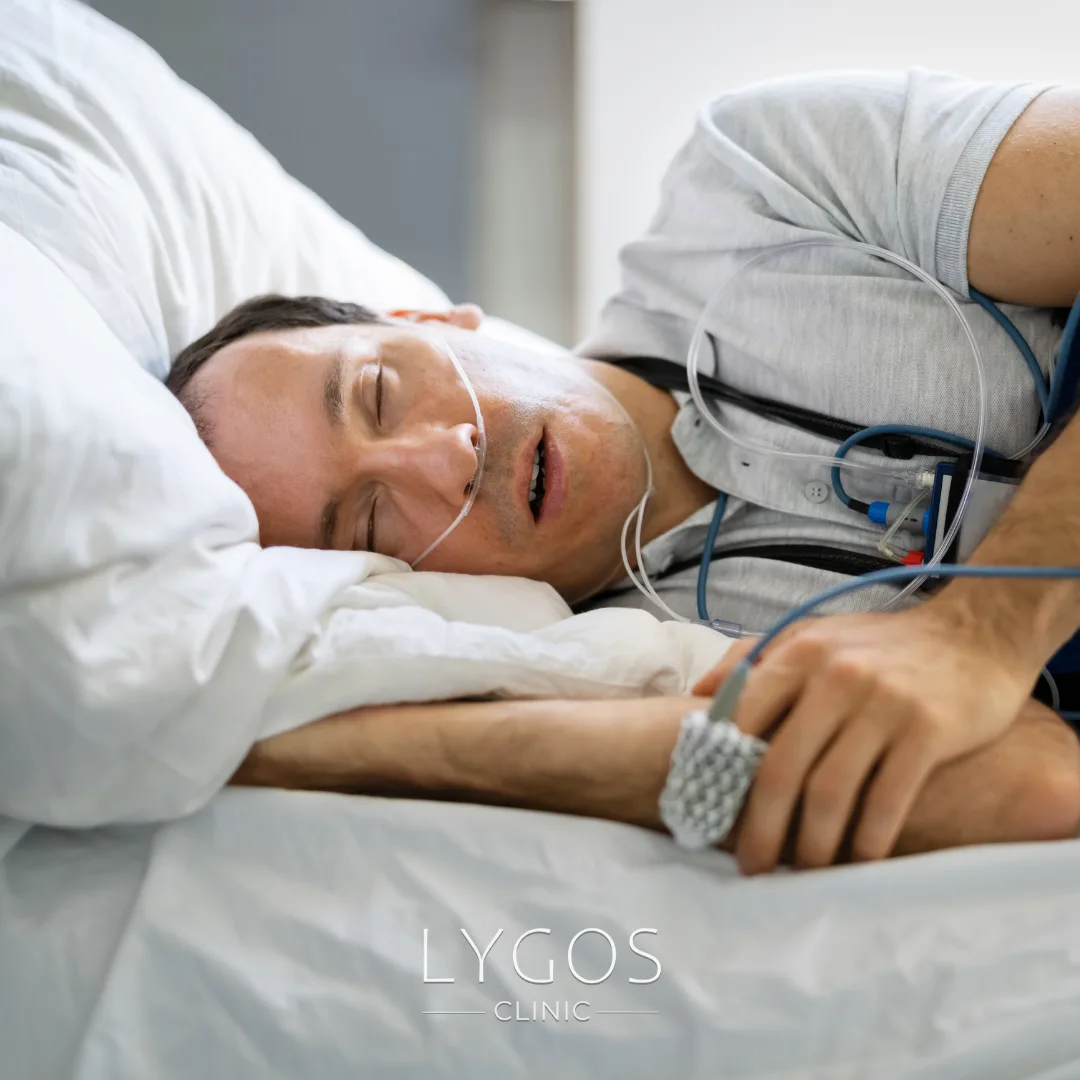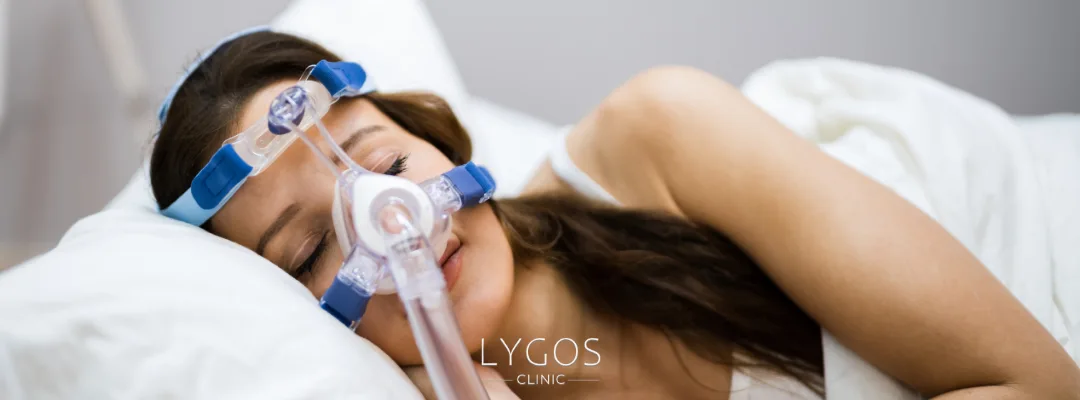The Impact of Sleep Apnea on Dental Health

Chose Your Topic
The Impact of Sleep Apnea on Dental Health
The impact of sleep apnea on dental health is an often-overlooked topic, despite its significant consequences. Sleep is vital for both our overall health and the body’s healing processes. However, for some individuals, this essential activity can silently lead to serious health issues. One such condition is sleep apnea, which not only affects the respiratory system but also has significant implications for oral and dental health. In this blog post, we will comprehensively explore the impact of sleep apnea on dental health
What Is Sleep Apnea?
Sleep apnea is a condition characterized by pauses in breathing or severely reduced airflow during sleep. The most common type, obstructive sleep apnea (OSA), occurs when the throat muscles relax and cause airway blockage. Another type, central sleep apnea, is related to the brain’s inability to properly control the breathing muscles.
In both types, individuals may wake up frequently throughout the night, which significantly diminishes both the duration and quality of sleep. This not only causes chronic fatigue but also negatively affects many systems, including heart health, metabolism, and notably, oral health. That’s why The Impact of Sleep Apnea on Dental Health should be part of the broader conversation on sleep disorders.

How Sleep Apnea Affects Oral Health
The Impact of Sleep Apnea on Dental Health often goes unnoticed by patients themselves. However, it may present noticeable signs during routine dental check-ups.
During apnea episodes, breathing difficulties can lead to mouth breathing, which disrupts the oral environment. This increases the risk of tooth decay, gum recession, and bad breath. Additionally, abnormal jaw positioning during sleep can place pressure on the teeth.
Dentists should watch for symptoms such as tooth surface wear, the need for a night guard, and morning dry mouth—all of which are valuable clues pointing to the impact of sleep apnea on dental health.

Does Sleep Apnea Cause Teeth Grinding (Bruxism)?
Yes, there is a strong link between sleep apnea and bruxism (teeth grinding). When breathing stops during sleep, the brain sends signals to activate muscles in an attempt to reopen the airway. This reflex can trigger sudden jaw muscle contractions, resulting in teeth grinding.
Over time, this can lead to:
- Tooth enamel erosion
- Jaw joint pain
- Temporomandibular joint (TMJ) disorders
This can increase tooth sensitivity and reduce quality of life. Therefore, the impact of sleep apnea on dental health is not just passive—it can be directly damaging.
When bruxism is observed, dentists should consider referring the patient to an ENT specialist or a sleep specialist, as it may be a symptom of an underlying condition like sleep apnea. Proper diagnosis is key to understanding the impact of sleep apnea on dental health in such cases.
Sleep Apnea’s Effect on Gum Disease
Sleep apnea can also have a negative impact on the gums. Mouth breathing reduces saliva production and disrupts the bacterial balance in the mouth. Saliva is a natural defense mechanism in the mouth, and its deficiency can lead to gum inflammation and advanced periodontal diseases.
Common signs like redness, swelling, and bleeding of the gums often indicate bacterial infections. These symptoms are more frequently observed in individuals with sleep apnea, highlighting a direct connection between the two conditions and emphasizing The Impact of Sleep Apnea on Dental Health.
Therefore, it is essential to evaluate patients with gum issues for sleep apnea—especially if they report morning fatigue and dry mouth. This allows dental professionals to better understand and address the impact of sleep apnea on dental health holistically.
Sleep Apnea-Related Dry Mouth and Tooth Decay Risk
Dry mouth is a common symptom in individuals with sleep apnea, often due to mouth breathing during sleep. This reduction in saliva disturbs the acid balance in the mouth, creating an environment where harmful bacteria thrive.
This significantly increases the risk of cavities. Without enough saliva to protect the tooth enamel, structural damage to the teeth can occur—damage that may be difficult to reverse.
The link between sleep apnea and dental health is clearly visible in symptoms such as dry mouth and increased risk of tooth decay. While maintaining good oral hygiene helps, the root solution lies in treating sleep apnea effectively. This underscores yet again the impact of sleep apnea on dental health

How Treating Sleep Apnea Improves Dental Health
When sleep apnea is brought under control, many associated oral and dental issues can also be alleviated. Treatment options include:
- CPAP (Continuous Positive Airway Pressure) devices
- Oral appliances
- Weight management
- Surgical interventions
Custom-made oral appliances are particularly beneficial. They reposition the jaw to keep the airway open and also help prevent teeth grinding—reducing the harmful effects and overall impact of sleep apnea on dental health.
CPAP therapy decreases the need to breathe through the mouth, thereby reducing dry mouth and the associated cavity risk. Quality sleep also strengthens the immune system, improving resistance to oral infections. Clearly, addressing The impact of sleep apnea on dental health through treatment can significantly enhance overall well-being.
A collaborative approach between dentists and ENT specialists can lead to highly effective outcomes for both general and oral health. Such interdisciplinary care magnifies the benefits and directly addresses the impact of sleep apnea on dental health
The Impact of Sleep Apnea on Dental Health Frequently Asked Questions (FAQ)
The Impact of Sleep Apnea on Dental Health includes dry mouth, teeth grinding, gum disease, and increased cavity risk. Mouth breathing during sleep disrupts saliva balance, negatively affecting oral health.
Yes. People with sleep apnea often experience bruxism (teeth grinding). When breathing stops during sleep, the jaw muscles may involuntarily contract, causing grinding or clenching—an important clue in recognizing The Impact of Sleep Apnea on Dental Health.
Indirectly, yes. Mouth breathing due to sleep apnea can lead to dry mouth, which promotes gum inflammation and recession. Weakened immunity also lowers resistance to oral infections, making The Impact of Sleep Apnea on Dental Health more evident.
Yes. Mouth breathing and reduced saliva leave the tooth enamel unprotected, making it more susceptible to decay. For this reason, The Impact of Sleep Apnea on Dental Health includes a heightened cavity risk.



